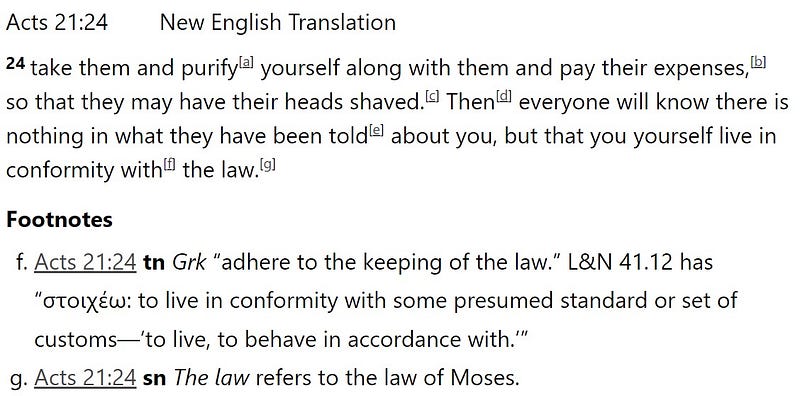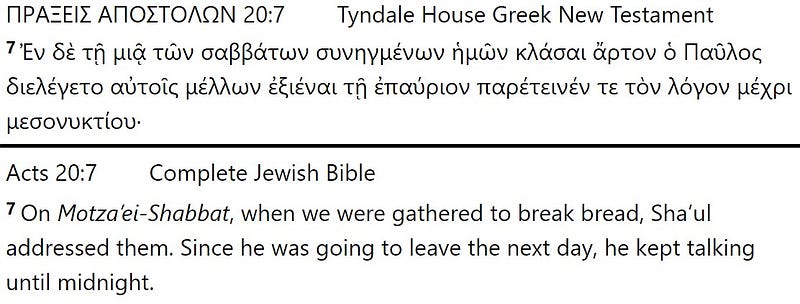
Antisemitism in Christendom continues. It may not be deliberate, but it still continues either out of ignorance or out of stubbornness. In some cases, ignorance is the cause. However, in an age during which historical data is available to anyone with Internet access, subbornness appears to becoming more dominant.
Antisemitism in Christendom is seen in the way that Gentiles (non-Jews) removed Jewishness from parts of the Bible when they translated the ancient biblical manuscripts into other languages.
An famous example of this phenomenon is seen in how the King James Version of the Bible replaces the Jewish name Passover with the Anglo-Saxon name Easter in Acts 12:4.

Decades later, translators of the Bible noticed the mistake in the KJV and corrected it.

As to why that particular mistake is in the KJV, one might blame the ethnocentric thinking of the earliest English-speaking translators. When translating a statement from one language to another, it is easy to forget that the culture of the fomer does not necessarily match the culture of the latter. If the cultural context is left out, then the translation might be technically correct from the perspective of the translator but be incorrect from the perspective of the culture that originated the statement.
For example, if the Spanish word padres were to be given a strict English translation, then the resulting English word would be fathers. However, in the Spanish language, padres is used to refer to one’s parents. That is because, unlike the English language, the Spanish language does not have gender-neutral nouns. Thus, the correct English translation of padres is parents unless the context indicates a need for a strict literal translation.
As for the error that appears in Acts 12:4 in the KJV, that particular error did not begin with the translators of the KJV. The error is also in the Bishops’ Bible which was first published in year 1568.

The error is also in the Great Bible which was published in 1539.

It is possible that, in regards to the use of Easter in Acts 12:4, the KJV translators simply followed a traditional translation that began with the Great Bible.
Yes, Bible translators can err by following a faulty traditional translation without realizing that the translation is faulty. So, is it possible that modern-day translations of the Bible continue to contain faulty traditional translations that Bible translators and preachers overlook?
The answer to that question is Yes if the Complete Jewish Bible is any indicator of errors made by non-Jews.
For example here are three versions of Acts 16:2.

The word Sabbath is apparent in the Greek version, which the Complete Jewish Bible (CJB) translates as Motza’ei-Shabbat. Yet, it isn’t used in the New English Translation (NET) which was first copyrighted in year 1996. Instead, the NET follows the traditional translation “first day of the week”.
In this particular case, translating Motza’ei-Shabbat as “first day of the week” is akin to translating the Spanish padres into the English fathers. The translation is technically correct but fails to say what the author actually means.
In Acts 21:24, one reads that the Apostle Paul conformed to the Jewish customs pertaining to the Torah.

Hence, Paul practiced the customs pertaining to Motza’ei-Shabbat, which are described as thus:

Yes, Motza’ei-Shabbat is the start of the Jewish week, but Motza’ei-Shabbat takes place at sunset on Saturday of the Gentile calendar.
It was at sunset on Saturday when Paul met with other Jewish believers in Jesus. This custom of Paul’s is referred to in Acts 20:7.

Yes, Acts 20:7 is talking about Paul and other Jewish believers in Jesus gathering for the Saturday night Jewish meal known as melaveh malkah.
The same thing is referred to in 1 Corinthians 16:1–3.

So, how do a majority of people in Christendom interpret Acts 20:7 and 1 Corinthians 16:2?
Answer: They claim that the verses prove that the Sabbath was changed from Saturday to Sunday.
That claim is not logical from the perspective of what Paul and Luke actually wrote. The claim isn’t based on sola scriptura. Instead, the claim is based on a Gentile tradition that developed after all of the Apostles were gone.
Granted, the New Testament does not forbid Gentiles from gathering together each Sunday morning in order to worship Jesus. However, the New Testament does not teach that Sunday is the Sabbath for believers in Jesus.
The “Sunday is Sabbath” claim is antisemitic on its face because it contradicts the Jewish customs that are reflected in Acts 20:7 and 1 Corinthians 16:2.
Gentiles in Christendom also make the claim that Sunday is the Lord’s Day, and it is common for them to say that Revelation 1:10 supports the claim. Yes, that book’s author mentions the Lord’s Day in that verse, but the author does not identify the Lord’s Day as being Sunday.
Historically, the author of the book of Revelation has been identified as being the Apostle John. If the Apostle John is indeed the author, then one has reason to believe that the author would not have identified Sunday as being the Lord’s Day, because John was a Jew.
In short, as a Torah-observing Jew, John would have done as Paul did in regards to the Sabbath. He would have rested from sunset Friday to sunset Saturday and then ate a meal at Motza’ei-Shabbat. Being that sunset Friday to sunset Saturday was a specific time that Jews worshipped God, it would make sense for John to receive his vision at that time.
Again, sola scriptura does not say that Sunday is the Lord’s Day. Gentile tradition says that.
Finally, in describing how Gentiles eliminated Jewishness from some parts of the Bible, one contradicts the groupthink that Gentiles have been marching lockstep in for centuries. Yes, Gentile believers in Jesus cling to their traditions, and they don’t want their traditions to be fiddled with.
At least that is something about Gentiles that Tevye the Dairyman would understand.
By the way, the word Christendom is not a synonym for faith in Messiah Jesus.
The “Wanted” posters say the following about David: “Wanted: A refugee from planet Melmac masquerading as a human. Loves cats. If seen, contact the Alien Task Force.”
















